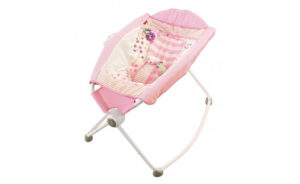 Having a newborn child in the home is a glorious thing. You are so amazed by this special creation that you have brought into the world that you never want to let your little one out of your sight. In fact, the feeling is often mutual. Rather than fight that at night, many mothers have adopted the practice of co-sleeping after they’re moved to a larger mattress size. It just seems more natural for mothers and infants to sleep side by side. To be fair, there are both supporters and opponents of co-sleeping. In fact, there is so much controversy regarding the issue that many mothers who have adopted co-sleeping never talk about it even with their close friends or pediatricians.
Having a newborn child in the home is a glorious thing. You are so amazed by this special creation that you have brought into the world that you never want to let your little one out of your sight. In fact, the feeling is often mutual. Rather than fight that at night, many mothers have adopted the practice of co-sleeping after they’re moved to a larger mattress size. It just seems more natural for mothers and infants to sleep side by side. To be fair, there are both supporters and opponents of co-sleeping. In fact, there is so much controversy regarding the issue that many mothers who have adopted co-sleeping never talk about it even with their close friends or pediatricians.
Pros of Co-Sleeping
Sharing the bed with your infant allows for the type of skin to skin contact that is highly beneficial. This has been shown to reduce the amount of stress that infants often experience. You will find that co-sleeping helps to further strengthen the special bond that exists between the infant and parent. Another benefit of co-sleeping is that it is believed to help increase the length of time that mothers can continue to breastfeed their newborn child.
Co-sleeping is also very convenient. Parents have long dreaded having to get up out of their bed to walk over to that of their infant’s in the middle of the night. With the newborn right there with the parent, this can be avoided. The practice also allows the baby and parent to connect their sleep cycles together. It is believed that this results in the infant waking up less often during the night.
Cons of Co-Sleeping
There are also some noted disadvantages of co-sleeping that should be taken into consideration. There is always the potential for injury when you are sleeping in such close proximity to your infant. This is especially common if you were to roll over on your infant while you are asleep. Because an adult bed does not typically have railings and sits much higher off the ground than a crib, there is the potential that the baby can fall off the bed as well. You will also want to be careful of tight spaces between the baby mattress and the wall, for example, as babies tend to get stuck in between those. The result can be quite hazardous. If you are not aware of your sleeping positions and afraid of the moves you are making during sleep, you should consider getting yourself the best pillow for combination sleepers that can help you sleep calmly without worrying about hurting or waking up your baby.
Another con of co-sleeping is that the transition process can be quite difficult. Once you start the practice, it is hard to go back. This is because many infants will experience separation anxiety when you suddenly ask them to start sleeping on their own. You will also suffer from a lack of privacy. Your bed is meant for you and your partner. When you start the practice of co-sleeping, you may lose that level of intimate connection that you have grown used to in your own marriage. This is something that you will want to consider as well.
Now that you understand the potential benefits and downsides to co-sleeping, you are more informed to make your own decision. You will have to weigh the disadvantages with what you perceive to be the advantages. In the end, this is your child so you need to do what you feel is in his or her best interest. At the end of the day, that is the best that you can do.
